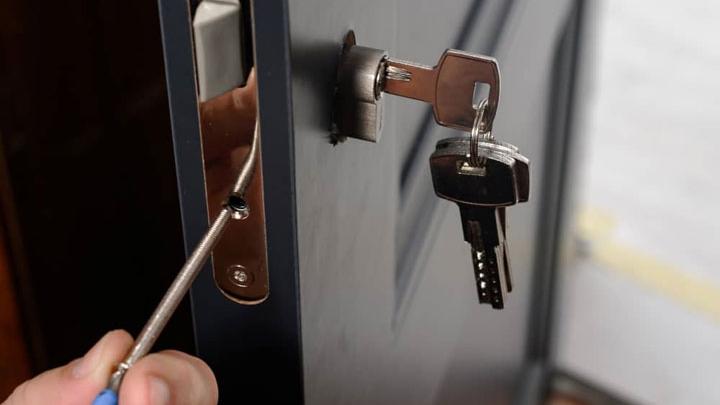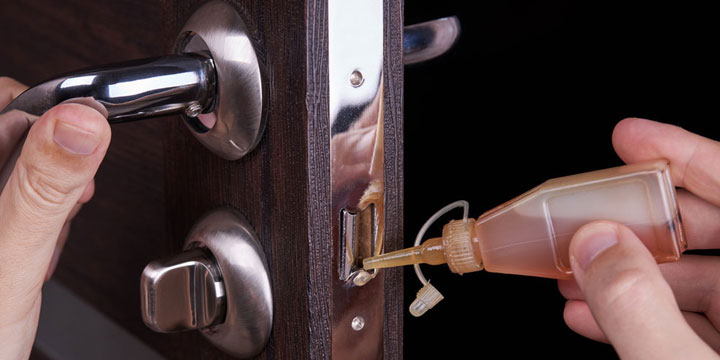How to Properly Maintain Door Locks: Smart Tips for Long-Term Use
2025-07-04 09:42

Door locks are one of the most frequently used yet often overlooked components of a home or building. We rely on them daily for safety and privacy, but rarely do we think about maintaining them until something goes wrong. Just like any mechanical device, locks require occasional care to keep them functioning smoothly. Proper maintenance not only improves performance but can also significantly extend the lifespan of your locks. Here are some practical and effective tips for keeping your door locks in top shape.
1. Regular Cleaning is Essential
Over time, dust, dirt, and grime can accumulate inside and around your lock. When using the key, this accumulation could cause stiffness or jamming. To avoid this, gently clean the exterior of the lock with a soft, damp cloth. Avoid using harsh chemicals, as they can corrode metal surfaces. For internal components, use a dry cloth or compressed air to blow out any debris that might have entered the keyhole. Performing this simple routine every few months can help your lock remain smooth and responsive.
2. Use the Right Lubricant
One of the most important things you can do to maintain your lock is to lubricate it correctly. Avoid oil-based products like WD-40, as they tend to attract dust and gum up over time. Instead, opt for a dry lubricant made specifically for locks, such as graphite powder or a Teflon-based spray. Insert a small amount into the keyway and turn the key a few times to distribute it evenly. This ensures the internal pins and tumblers continue to move freely without unnecessary friction.

3. Inspect Screws and Strike Plates
Loose screws on the lock body or strike plate can cause misalignment, leading to difficulty when locking or unlocking the door. Periodically check all screws on both the lock and door frame, tightening them as needed. Also, make sure the strike plate aligns correctly with the latch. A properly fitting strike plate lessens strain on the locking mechanism and guarantees smooth operation.
4. Avoid Slamming the Door
Repeatedly slamming a door can damage more than just the hinges—it also affects the locking components inside. The force of the impact can loosen internal parts or cause them to misalign over time. Doors should always be closed softly, particularly if they have an electronic lock or deadbolt installed. If your door tends to slam due to wind or faulty closers, consider installing door stoppers or dampers to absorb the force.
5. Duplicate Keys Properly
Using a worn or poorly duplicated key can gradually damage your lock's inner components. Always have spare keys made by reputable locksmiths using the original key, not a copy of a copy. If your key starts sticking or feels different when turned, it may be time to re-cut it or inspect the lock for wear.
6. Protect Locks from the Elements
Particularly susceptible to corrosion, temperature changes, and moisture are outdoor locks. Use weatherproof lock types or build a weather-resistant cover if your lock is exposed to the elements. Another way to prevent corrosion and preserve longevity is to apply a thin layer of protective coating made specifically for metal surfaces.
7. Don't Ignore Warning Signs
If your key starts to stick, the lock feels unusually loose, or you have to jiggle it to open the door, don't ignore these warning signs. They are often early indicators that your lock needs maintenance—or possibly replacement. Addressing small issues early can prevent costly repairs or emergency locksmith visits later on.
In situations where a lock becomes unresponsive or you need non-destructive entry into your own property, having the right tools on hand can be invaluable. For those interested in lock mechanisms or basic lockout solutions, you can buy lock pick sets at barhomevip.com. Just use them sensibly and in compliance with regional regulations.
Conclusion
Proper door lock maintenance is an often-overlooked aspect of home care, but it plays a critical role in ensuring safety, convenience, and long-term durability. With just a few simple steps—cleaning, lubricating, checking alignment, and using keys carefully—you can avoid unexpected lock failures and extend the life of your hardware. If you take good care of your locks, they will dependable secure your house for many years to come.
 Promotion: 5% Discount Code: 5vip
Promotion: 5% Discount Code: 5vip